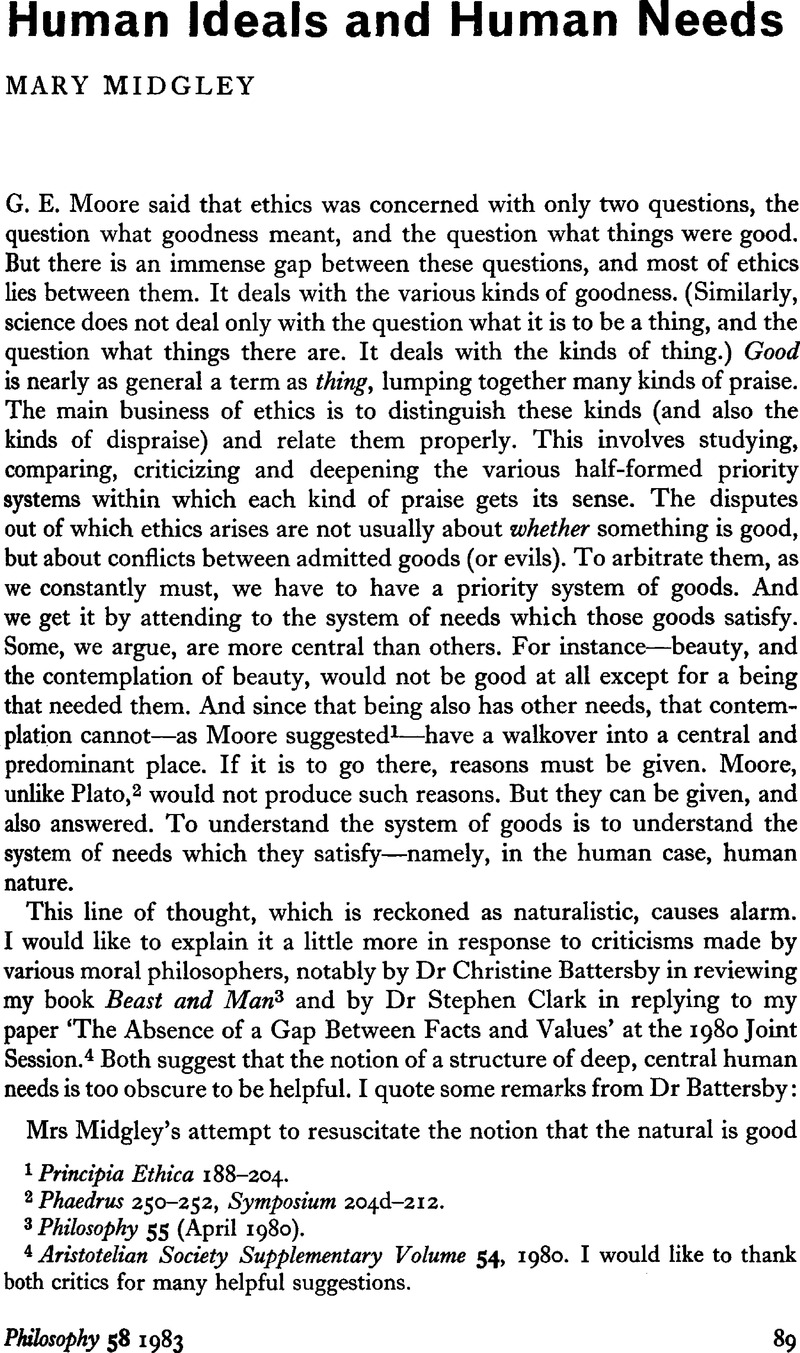Published online by Cambridge University Press: 30 January 2009

1 Principia Ethica 188-204.
2 Phaedrus 250-252, Symposium 204d-212.
3 Philosophy 55 (April 1980).
4 Aristotelian Society Supplementary Volume 54, 1980. I would like to thank both critics for many helpful suggestions.
5 Utilitarianism, Ch. 2 (London: Fontana), 275.
6 See especially IX.588, where the doctrine of the tripartite soul is used alone to settle the crucial issue of the profitability of justice.
7 I cannot deal properly here with this highly obscure term. I have discussed it in my Joint Session paper. See also the first essay in my Heart and Mind: The Varieties of Moral Experience (Brighton: Harvester Press, 1981).
8 p. 272. The confusions resulting from the present tendentious use of this term are admirably dealt with by Janet RadclifTe Richards in The Sceptical Feminist, Ch. I (London: Routledge and Kegan Paul, 1980).
9 Dr Clark's objection in his final section (pp. 233-240) seems essentially similar.
10 Maynard Keynes, interpreting Moore, calls Benthamism ‘the worm which has been gnawing at the insides of modern civilization and is responsible for its present moral decay’ (Two Memoirs (London: Hart-Davies, 1949), 96).
11 Groundwork, Ch. 1, Paton translation (The Moral Law (London: Hutchinson, 1947), 62).
12 See Beast and Man, 72, and, for the general relation of formal to material needs, Ch. II. It may be vulgar to mention it, but with a different kind of cerebral cortex we probably should not have these formal needs at all. Apes do not seem to.